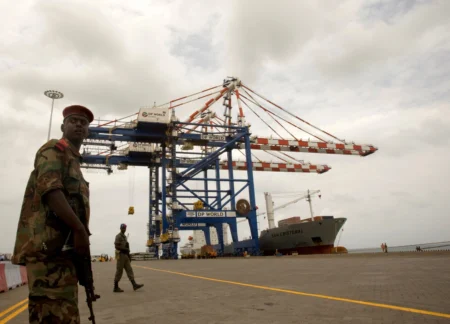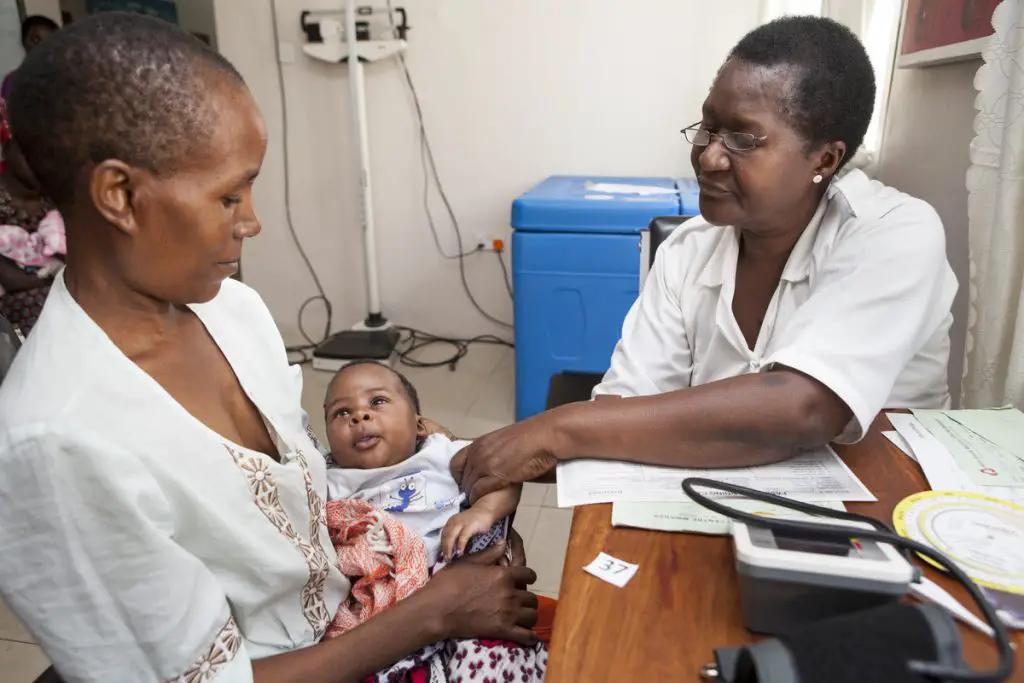- Africa’s new dawn: the rising role of digital and AI in agriculture
- Can Dangote Refinery Transform Africa Energy Ambition
- Gallup Survey: 80 per cent of Kenyan Workers Are Disengaged and Seek New Opportunities
- Madagascar Man Freed from 5KG Tumor After 15-Year Struggle
- How women in Africa are perceived and treated
- Sugar consumption in Kenya to Increase to 1.23 Million Tonnes
- Can Somalia and Turkey Oil deal Bring Change in Somaliland
- Remittances to Kenya dropped to $371.6 million in June, marking a six month low
Browsing: Agence Française de Développement (AFD)
- The EU is supporting efforts in the Horn of Africa that will boost regional economic integration and trade.
- Djibouti’s major trading partner countries include Ethiopia and troubled Somalia.
- Trade Mark Africa is helping implement a single window system which is already in use across EAC.
The EU has expressed its support for Djibouti’s plan to enhance connectivity within the Horn of Africa, a move that will promote trade with Ethiopia, one of the region’s biggest trade partners.
This collaboration is in sync with the African Alliance for e-commerce, a consortium comprising 18 member countries, dedicated to advancing the Single Window concept. This alignment adheres to the recommendations set forth by international institutions.
A pivotal project within the Alliance is the establishment of a Regional Single Window, designed to seamlessly interconnect all national platforms. The overarching goal is to streamline trade processes, bolstering the competitiveness of African nations on the global …
A global coalition of public development banks today emphasized the urgency of immediate resources for Africa’s recovery post-Covid 19. Together, they committed to deepening cooperation to boost investment opportunities across the continent.
Participants in the meeting, hosted by the African Development Bank, brainstormed on joint actions that could help boost a strong and inclusive recovery in Africa. This would be recovery grounded in a dynamic private sector. The African Association of Development Finance Institutions co-organized the meeting in collaboration with the International Development Finance Club, which is hosted by the Agence Française de Développement.
The meeting was held virtually and follows the first Finance in Common Summit held in November 2020. At that summit, public development banks committed to work together to support the transformation of the global economy and society towards sustainable and resilient development.
During the three principal sessions of the meeting, heads of public development banks and …
If there is one sector that receives great attention in Africa, then it must be the small and medium enterprises (SMEs) area. Over the years, governments and multilateral agencies have identified the great role played by the SMEs in providing jobs, services and contribution to domestic economies.
A National Economic Survey report by the Central Bank of Kenya (CBK) two years ago indicated that SMEs constitute 98 percent of all businesses in Kenya, create 30 percent of jobs annually as well as contribute 3 percent of the GDP.
The situation is similar in the rest of the continent as well as worldwide. According to World Bank, SMEs represent about 90 percent of businesses and more than 50 percent of employment worldwide. Formal SMEs contribute up to 40 percent of national income (GDP) in emerging economies. These numbers are significantly higher when informal SMEs are included.
SMEs are less likely …
The Aga Khan Health Services, the arm of the Aga Khan Development Network (AKDN) that supports activities in health across Africa and Asia has announced a new partnership with the French Development Agency (Agence Française de Développement – AFD) to establish infectious disease units in two of Tanzania’s cities.
The two entities have signed a €300,000 grant agreement to establish Infectious Diseases Units (IDU) in Dar es Salaam and Mwanza. The Infectious Disease Units will offer full-fledged services, capacity building, infrastructure, and technology to enhance the quality of service delivery.
The grant will enable the strengthening of the current system to address challenges pertaining to infectious disease control management. It will enable the Aga Khan Hospital, Dar es Salaam to respond adequately to pandemics, such as COVID, including addressing issues pertaining to inadequate health infrastructure and capacity.
The grant of €300,000 is provided as part of the worldwide “COVID-19–Health in …








